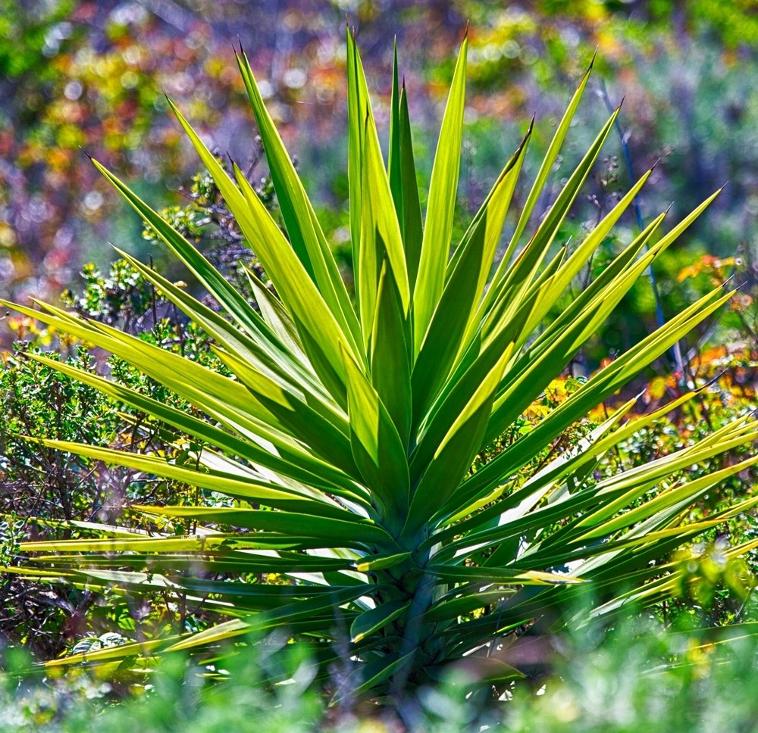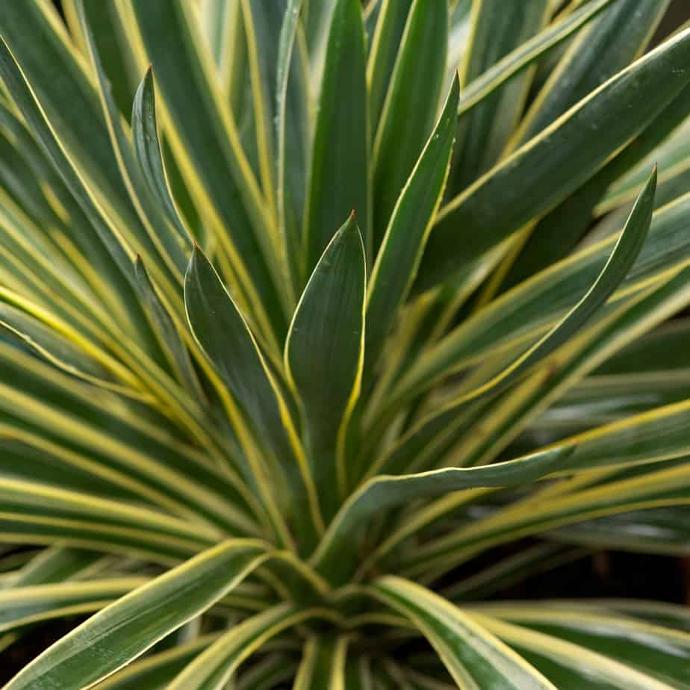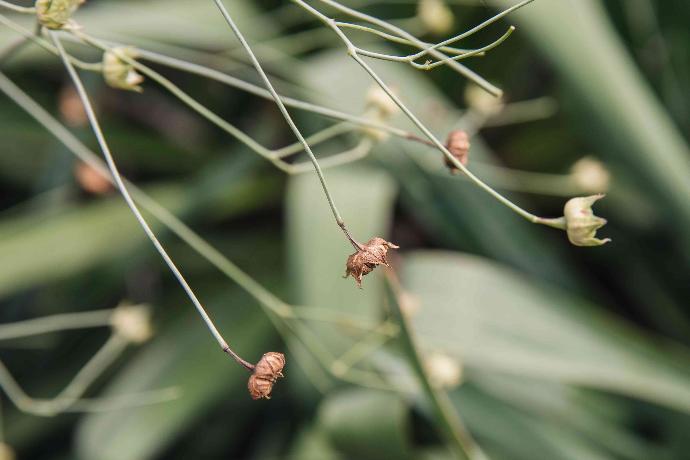Adam's Needle Plant
Adam's Needle (Yucca filamentosa) is a shrub that grows 2-3 ft tall, hardy in USDA Zones 4-10, prefers well-drained, sandy soil, full sun, low to medium moisture, edible flowers, and has medicinal uses.

Habit
Shrub
Height
2-3 ft
Growth
Slow
Soil
Well-drained, sandy
Shade
Full Sun
Moisture
Low to medium
Edible
Yes, flowers
Medicinal
Yes
Origin
North America
Climatic Condition
Arid, Dry
Temperature (°)
10-35°C
Humidity (%)
30-50%
Potting media
Cactus Mix
Fertilizers
Low Nitrogen (5:10:5)
Watering
Low, Drought Tolerant
Plant Weight
300-500 g
Flowering Time
Summer
Soil Ph level
6.0-7.5
Water Ph level
6.0-7.5
Soil EC
0.8-1.5 dS/m
Yield Per Plant
Ornamental
NPK ratio
5:10:5
life Span
10-15 yrs
Health Benefits
Suggested Grow Media or Potting Mix ?
33% cactus mix, 33% perlite, 33% sand
Suggested Fertigation/Fertilizers
Fertilize monthly with cactus-specific fertilizer.
Common Diseases and Remedies
Crown Rot, Leaf Spot, Scale Insects, Anthracnose, Powdery Mildew
Soft, mushy crown, wilting leaves, Brown or black spots on leaves, Yellowing leaves, presence of scales, Dark, sunken lesions on stems/leaves,White powdery coating on leaves
Improve drainage, use cinnamon powder, Remove affected leaves, use neem oil, Introduce beneficial insects, neem oil, Prune affected areas, use neem oil, Apply sulfur or neem oil
Fungicides with thiophanate-methyl, Copper-based fungicide, Horticultural oil, systemic insecticides, Fungicides with azoxystrobin, Systemic fungicides like myclobutanil
HEALTH BENEFITS
Adams needle, also known as Yucca filamentosa, is a perennial plant native to North America. While it's primarily known for its ornamental use in gardens, it has been used in traditional medicine for various health benefits. Some of the potential health benefits associated with Adams needle include:
- Anti-inflammatory properties: The plant is thought to have anti-inflammatory effects, which may help in reducing swelling and pain, especially in conditions like arthritis.
- Digestive health: Adams needle has been used traditionally to improve digestion. It is believed to help with stomach issues such as bloating and indigestion due to its soothing properties.
- Antioxidant effects: The plant contains compounds that are thought to have antioxidant properties, which can help neutralize free radicals in the body, potentially reducing oxidative stress and supporting overall health.
- Skin care: In some traditional practices, Adams needle has been applied topically to promote healing of wounds and reduce skin irritation, as its extracts are believed to have antibacterial and soothing effects.
- Detoxification: It is sometimes used as a mild detoxifying agent, helping to cleanse the body by promoting kidney and liver function.
Though Adams needle has a history of medicinal use, it's important to consult with a healthcare professional before using it for any therapeutic purpose, as more research is needed to confirm its health benefits and safety.

